Each year in the month of May we honor Asian American Pacific Islander (AAPI) Heritage Month. Although AAPIs are a minority group, they make up a large portion of the Texas population. AAPIs are the fastest growing racial group in Texas, with more than 1.9 million people across the state – the third largest AAPI population in the U.S. The Texas Demographic Center has projected nearly 61% growth for the Texas AAPI population by 2050.
With the AAPI community rapidly growing in Texas, it’s important to hear the experiences of AAPIs and ensure they have representation in all industries. In honor of AAPI Heritage Month, THA sat down for Q&As with three AAPI leaders in Texas hospitals. Join us in celebrating the following AAPI hospital leaders:
ERIN ASPREC | Executive Vice President & Chief Operating Officer, Memorial Hermann Health System

What inspired you to pursue a career in health care?
I was born with a congenital heart defect. At a very young age, my days were filled with visits to doctors’ offices and hospitals, and I underwent treatment and surgeries that quite literally saved my life. Those experiences imprinted upon me the profound impact that high-quality care can have on a person’s life. Even as a child, however, I also understood the inequity that existed in health care, and I knew that not all children had the same access to the lifesaving care I had received. That realization ignited a fire within me, and I knew that I wanted to dedicate my life’s work to addressing those problems and being part of the solution. Helping engineer a system where every person, without exception, can readily obtain the care they need to live the healthiest life possible continues to be what excites me the most about my role as COO at Memorial Hermann.
How has being a part of the AAPI community impacted your life or your career?
Being a member of the AAPI community has profoundly shaped both my life and my career by providing unique and cherished experiences, values and perspectives. On a personal level, being part of the AAPI community gives me a sense of identity that spans culture, language and tradition. It has fostered not only a strong appreciation for cultural diversity, but also a broader understanding of different people and perspectives.
Growing up as part of this community was not without its challenges, however, and I personally have had to overcome barriers and stereotypes that unfortunately continue to persist today. That said, these experiences have instilled in me a commitment to promoting inclusivity for all, as well as a sense of resilience, which has served me well both personally and professionally.
What does being an AAPI leader in your hospital and in health care mean to you?
I take my responsibilities as Chief Operating Officer for Houston’s largest not-for-profit health system very seriously. The health and safety of our workforce, our patients and our community members are truly at the heart of every decision we make. Being a leader at Memorial Hermann means bringing to life our commitment to service excellence and the consistent delivery of compassionate, personalized care.
I am also a leader who represents and advocates for the AAPI community, working to address disparities in access to care and to promote cultural understanding among colleagues and peers. Many patients in the AAPI community face challenges in the health care setting, including language barriers or cultural differences, and I’m proud to be part of an organization that is working systematically to address these issues and ensure that all those we serve have access to the same level of high-quality care.
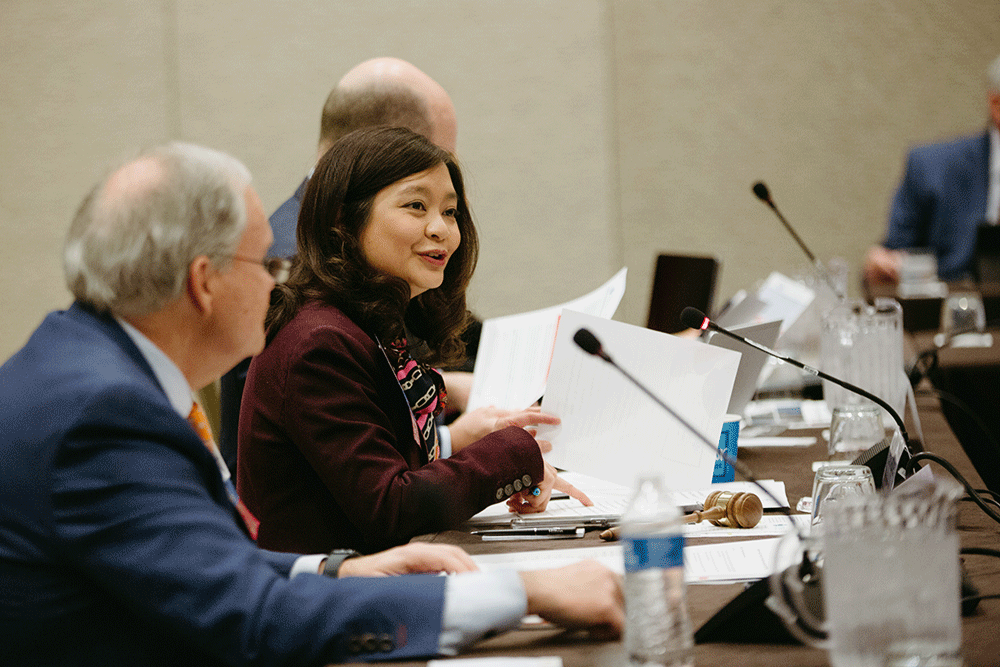
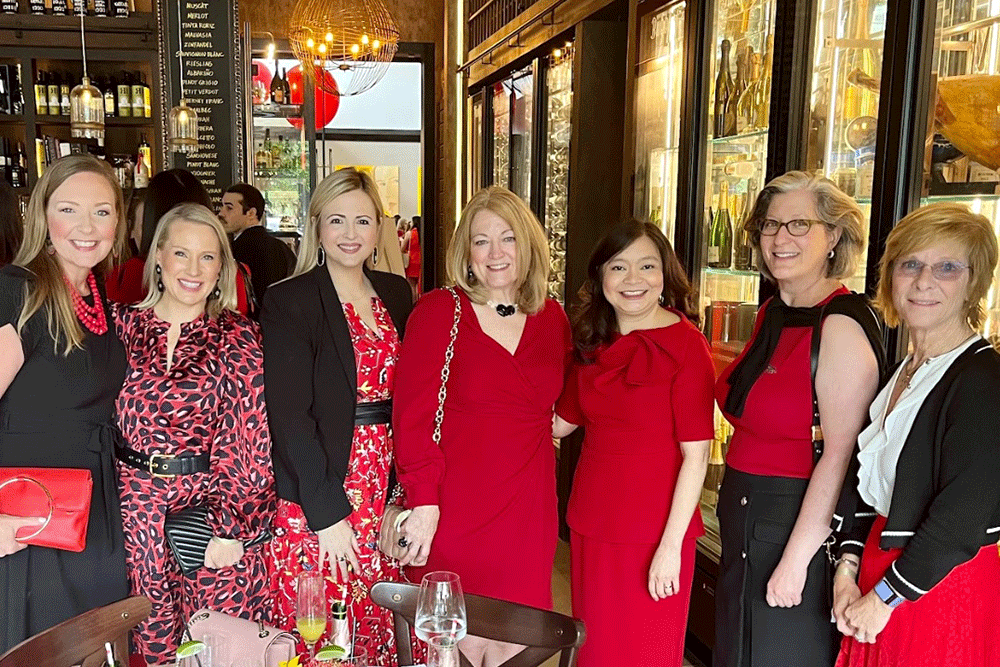
What impact do you hope your work has within your community?
I hope that my work at Memorial Hermann is helping to advance our vision to create healthier communities, now and for generations to come. We are working to redesign how care is delivered through innovative new strategies to improve health for all the richly diverse populations we serve.
As part of my role as COO, I also oversee our system’s Community Benefit Corporation, which works to help families in our communities stay healthier by providing accessible preventative care, resources and support. For more than 115 years, Memorial Hermann’s focus has been improving health for our communities, contributing nearly $500 million annually through school-based health centers and other community benefit programs. We know these programs are having a measurable, positive impact across Greater Houston, including for members of the AAPI community, and I am immensely proud to be a part of this work.
Finally, on a more personal note, I hope my work serves as inspiration, not just to others in the AAPI community but also to other women leaders everywhere. As someone who credits mentors for much of my own success, I’m proud to pay it forward by serving as a mentor to future women leaders within our organization and beyond, with the goal of having a positive impact on both their personal lives and professional careers.
JOSEPH CHANG, MD | Chief Medical Officer, Parkland Health
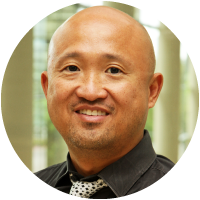
What inspired you to pursue a career in health care?
This is actually a really funny question. Bucking the usual Asian family stereotype, I did NOT want to be a doctor. (I was very good at math, though! I suppose we can’t buck all of our stereotypes!) That said, after two years at MIT, I discovered that I actually hated lab research and that the last thing I wanted to do the rest of my life was sit in a chemistry lab and try to discover something! I must admit, I was a bit lost that summer after sophomore year. I went back home to Taiwan and volunteered at a children’s hospital. I loved kids, and it was something to do during the day when my friends were all working. I spent hours with families, during and after surgeries. Their worry and anxiety turned into relief and tears of joy. Are you kidding me? I could make that kind of difference in someone’s life? That was it, I was hooked.
How has being a part of the AAPI community impacted your life or your career?
Growing up in Texas, I never really thought about being Asian. Whether in small town Texas (Beaumont in the 1980’s) or suburb Texas (Plano and Sugar Land), I always saw myself as just another kid. To me, being Asian was just…well, me. To be sure, I was always surrounded by folks that didn’t look like me, but I truly don’t think it ever dawned on me that I was different in any meaningful way. I think the biggest thing I saw in the Asian community was this belief that all of us would rise and fall by the virtue of our effort and work ethic. I believed to my core that if I put in the work, I would get there – wherever “there” was! As I got older and hopefully, wiser, I saw that in fact, the Asian way was very much one of family and community. We would all celebrate our successes; a win for one was a win for all. Those two things – effort and community – formed the foundation of my development.
What does being an AAPI leader in your hospital and in health care mean to you?
As I’ve mentioned, I never thought of being Asian as being in anyway special or different. Indeed, Asians in health care are plentiful and respected. According to the last census, about 6% of Americans are Asian, but the American Medical Association states that over 20% of physicians are Asian. A couple of years ago, though, I was recognized by the Chinese Chamber of Commerce in Dallas as a leader in the community. The outpouring of support from the Asian community was truly moving and humbling. What does this mean to me? I think it means that I have a huge responsibility to represent this community in a way that they can be proud of. Similarly, I feel a huge responsibility to be an individual that the AAPI community at Parkland can be proud of. I hope that I continue to do that in the days to come.
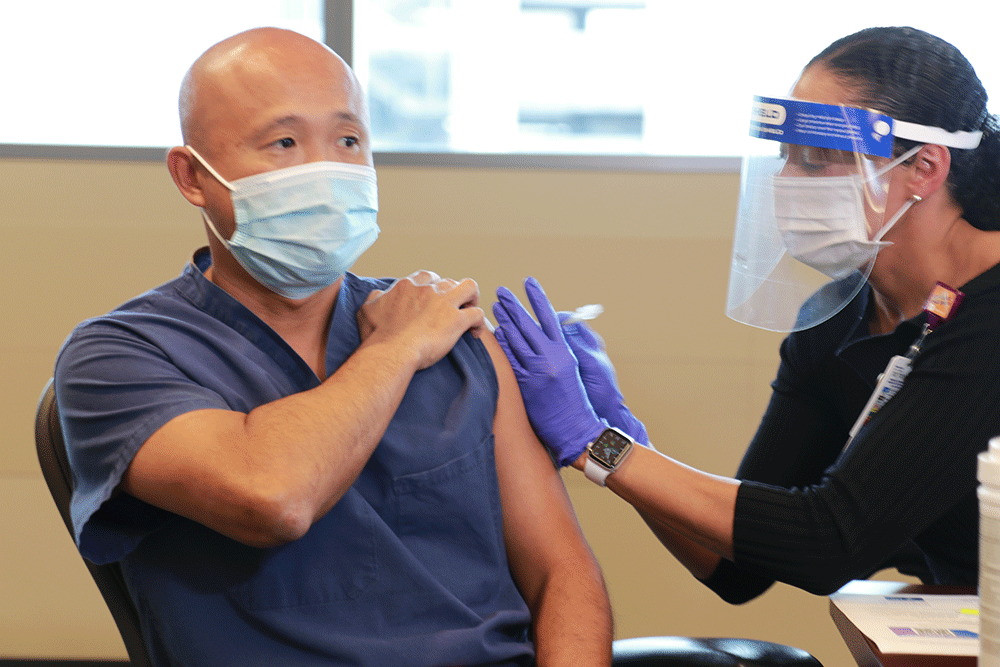
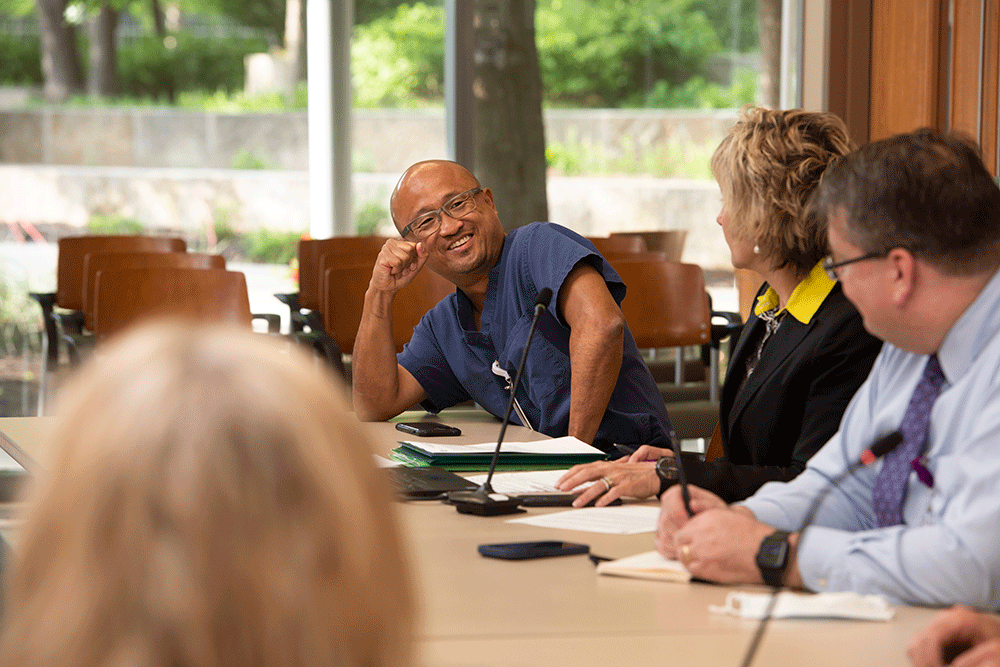
What impact do you hope your work has within your community?
I have never looked at myself as a community leader. I’ve always just tried to serve in whatever role I was in, nothing more. To be honest, all of the attention that COVID brought me is still overwhelming and a bit embarrassing. I am no one special. I really just try to honor God for the blessings He has granted me, and serve in a way that pleases Him. Though cliché, I do truly hope that I will leave DFW a better place than when I started here. I hope that those who see me see a man who really just wants his family and God to be proud of all he has done, and in by striving for that, has made some people’s lives better.
WINJIE TANG MIAO | Senior Executive Vice President and Chief Operating Officer, Texas Health Resources
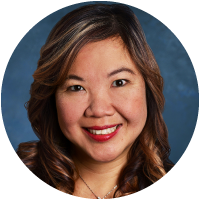
What inspired you to pursue a career in health care?
I have always liked understanding how things work – from the human body to how things are made. That’s what led me to pursue a degree in biomedical engineering. My interest in system level design, coupled with my mom instilling in me a strong belief that we have a duty to be of service to others, led me to public health and, ultimately, choosing a career in health care delivery.
How has being a part of the AAPI community impacted your life or your career?
Growing up in a small town in the Midwest, I was aware that my traditions were different from my peers and neighbors from a young age. My lunches didn’t resemble my classmates and we celebrated holidays that weren’t on any school calendar. Still, I was always proud of my heritage and enjoyed sharing my culture (especially food!) with others. That experience made me keenly aware that we all have a unique story and that learning about an individual’s background, acknowledging their values and honoring their preferences can be impactful and empowering. It definitely was for me and is a part of my core values, both personally and professionally.
What does being an AAPI leader in your hospital and in health care mean to you?
The first word that comes to mind is belonging. At Texas Health, we believe that being an integrated part of the community, and not just in a community is how we improve well-being and achieve health equity. That’s why we don’t have separate “diversity initiatives” but a holistic, integrated plan that provides employees, community members and other like-minded organizations opportunities to drive community impact with us collectively.
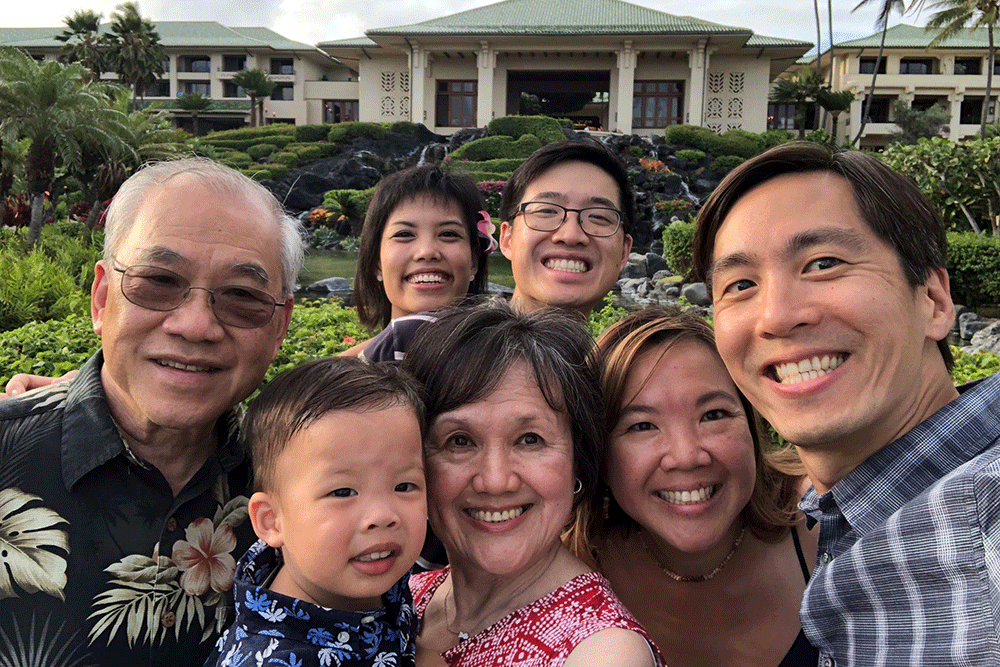
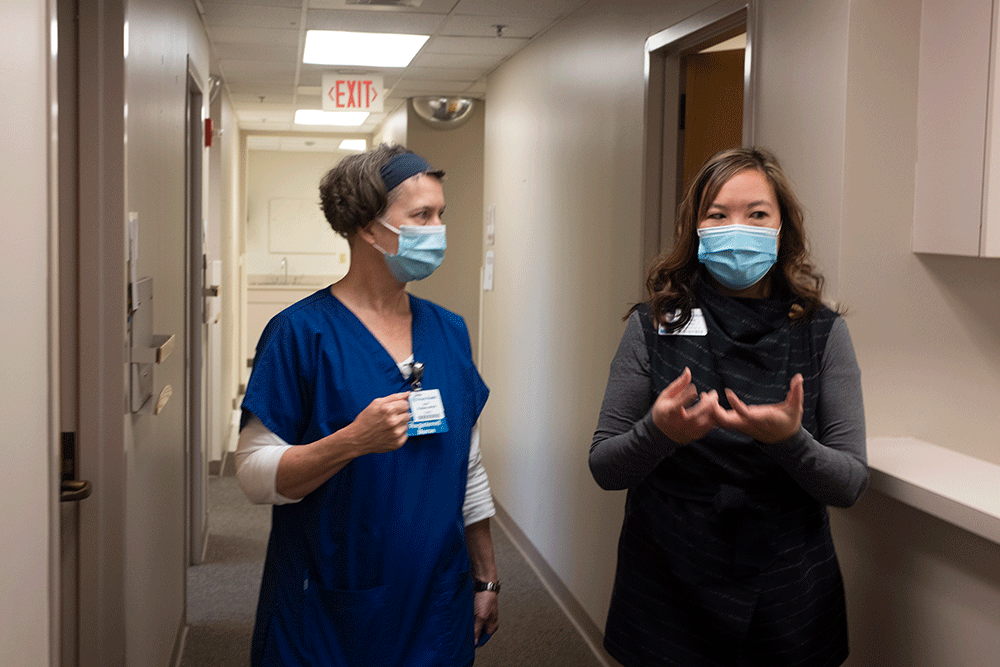
“Belonging” also rings true because we have a responsibility to create an environment where every individual – whether seeking care or providing services to those individuals – knows that they belong. A simple but meaningful example could be offering food options that are familiar and comforting to the specific set of cultures represented at each facility. I’ve been very fortunate to have leaders that have been intentional and thoughtful in their actions to create a sense of belonging for me. It’s my responsibility to pay that forward.
What impact do you hope your work has within your community?
I know we will have had a positive impact when it passes my “grandma test.” Navigating the health care system – specifically being able to understand options and articulate care decisions and preferences can be daunting. My grandmother immigrated to this country when she was in her thirties and worked in a garment factory until her seventies. When our care processes — clinical, social and administrative – are easily accessible and understood by my grandma (and yours as well!), then I know we will have made progress. These intentionally designed internal processes, combined with an integrated community plan, could improve health and well-being for all.

